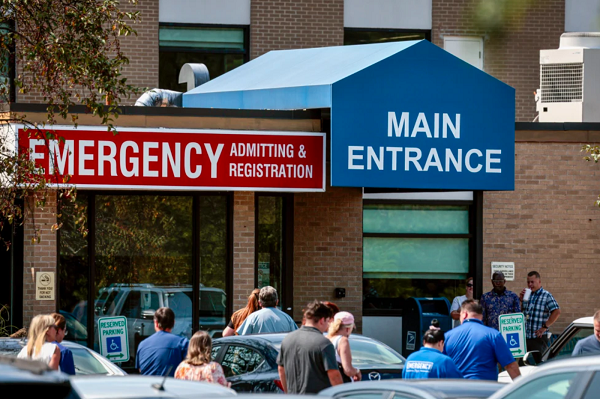After private equity takes over hospitals, they are less able to care for patients, top medical researchers say
By Gretchen Morgenson
July 31, 2024, 11:00 AM PDT
 After private-equity firms acquire hospitals, the facilities’ assets and resources diminish significantly, leaving the facilities less equipped to care for patients, according to a new study by physician researchers at the University of California at San Francisco, Harvard Medical School and the City University of New York’s Hunter College.
After private-equity firms acquire hospitals, the facilities’ assets and resources diminish significantly, leaving the facilities less equipped to care for patients, according to a new study by physician researchers at the University of California at San Francisco, Harvard Medical School and the City University of New York’s Hunter College.
Published Tuesday in the Journal of the American Medical Association, the research highlights a pattern of asset stripping at health care facilities purchased by private-equity firms, its researchers said, and is the first study to analyze the activity nationwide.
“It’s a very striking finding and should change the way people think about private equity in hospitals,” said Dr. Stephanie Woolhandler, a distinguished professor of public health at Hunter, part of CUNY, and one of seven authors of the study. “The PE firms say, ‘We bring new capital into hospitals.’ It turns out that’s not quite true.”
Assets studied in the research consist of land, buildings, major hospital equipment and information technology. The study found that during the two years after a private-equity acquisition, total capital assets at private equity-acquired hospitals declined by 15% on average while assets rose by an average of 9% at other hospitals. That makes for a net difference of 24%, the researchers found, equivalent to a loss of $28 million in total assets per hospital.The research studied 156 hospitals acquired by private-equity firms from 2010 to 2019 comparing them with 1,560 hospitals of similar size in similar communities that were not bought by private equity. The pattern of diminished assets persisted and widened five years after acquisition, the study reported.
Depleted assets translate to a reduced level of care, Woolhandler told NBC News, noting that equipment, buildings and technology are resources needed for patient care. “There are real dangers to the health care that people get if you deplete all the capital from a hospital,” she added.
Private-equity firms borrow money to buy companies that they hope to sell in a few years at a profit. Independent academic research shows that such leveraged buyouts result in far more bankruptcies than acquisitions that do not use so much debt and the deals can result in significant job losses for rank-and-file workers.Health care has been a primary focus of private-equity purchases in recent years, with over $500 billion invested in the industry by firms such as Apollo Global Management, The Blackstone Group, The Carlyle Group and KKR. The American Investment Council, the industry lobbying group, says private equity improves health care.
But increased patient falls and infections follow private-equity takeovers of hospitals, recent research shows, and residents of nursing homes owned by private-equity firms experience 10% greater mortality rates than those owned by other types of entities.
“Previous studies have found that patients are endangered and costs increase in the wake of private-equity acquisitions,” said Dr. Elizabeth Schrier, a resident physician at the University of California, San Francisco, and a lead author of the new research.
The report on asset-stripping in private equity-owned hospitals comes amid the collapse of Steward Health Care, a hospital chain recently owned by private equity that filed for bankruptcy in May, leaving patients and workers at 31 facilities adrift. Last week, the Senate’s Health, Education, Labor and Pensions committee announced an investigation into the Steward crisis.
Until 2020, Steward was owned by Cerberus Capital, a private-equity firm led by Steve Feinberg. In 2010, Cerberus bought a nonprofit chain known as Caritas Christi Health Care for…
[READ THE COMPLETE ARTICLE HERE]
